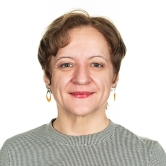Massive Modular Ecosystems - A framework for understanding complex industries in the digital age
29 May 2025 4:00 pm CEST
Join Daria Taglioni as she explores the dynamics of digitally-mediated modular ecosystems in global tech industries
Venue
online (Zoom webinar)
Description
In this study, the authors shed light on the intricate and dynamic structure of modern mobile phone and AI-related industries — revealing how no single firm leads, yet innovation thrives. Digitally mediated modular ecosystems (MMEs), like those underlying smartphones, have evolved organically into multi-layered, interdependent systems. While modular platforms and value chains provide the structural backbone, innovation hinges on less modular modes of coordination — including deep partnerships and in-house capabilities. The most successful firms strike a delicate balance between fitting into the modular logic and pushing its boundaries.
The authors also reveal how thousands of functionally specific standards — many developed through voluntary engineering contributions — enable the integration of sub-ecosystems into global tech stacks. Heavy-handed state interventions risk disrupting this delicate equilibrium. Meanwhile, MMEs offer flexibility that helps latecomers survive export restrictions, enables ‘over-the-top’ innovation (e.g., WeChat, generative AI), and creates deeply embedded positions for firms like ARM, which are virtually irreplaceable.
Yet despite the global structure, the dominance of US firms is pronounced across nearly all but a few subsystems — memory, display, manufacturing, and assembly. Even so, the idea of a fully American-made mobile phone remains both infeasible and undesirable.
This event is co-organised with the European University Institute (EUI) and the Research Centre International Economics (FIW). The seminar provides a forum for presentation and discussion of recent academic research in the field of international economics.
The event will be recorded.
Registration
This is an online event – please register here
Speaker
Daria Taglioni is Research Manager, Trade and International Integration, Development Research Group. She joined the World Bank Group in 2011 as Senior Trade Economist in the International Trade Department of the Poverty Reduction and Economic Management Network (PREM). Since then, she has held various positions and roles, including Team-Task Lead for the World Development Report 2020, Principal Economist in the International Finance Corporation, and World Bank’s Global Lead on Global Value Chains. Previously, she worked as Senior Economist at the European Central Bank (ECB) and as Economist at the Organisation for Economic Cooperation and Development (OECD). She has published in the American Economic Review, Journal of International Economics, and other scholarly journals. Her work has been featured in international media outlet such as the New York Times and Forbes. She authored various books on international trade. She is Italian and holds a PhD in International Economics from the Graduate Institute, Geneva.
Discussant
Armando Rungi is a professor of economics at IMT School for Advanced Studies in Lucca, Italy, where he teaches econometrics, international economics, and macroeconomics to PhD students. He is specifically interested in topics of international economics, industrial organization, applied econometrics, and statistical learning. His most recent works focus on the organization of multinational enterprises, global value chains and labour markets, the cyber-resilience of supply chains, the determinants and consequences of firms' international market power, and the integration of econometric and machine learning tools for predictive analyses and policy evaluation. He has worked as a consultant on international trade and investment issues for the European Commission, the OECD, and the United Nations Conference for Trade and Development (UNCTAD).
Scientific Organiser(s):
Fabio Santeramo (European University Institute & University of Foggia)
Mahdi Ghodsi (The Vienna Institute for International Economic Studies)



